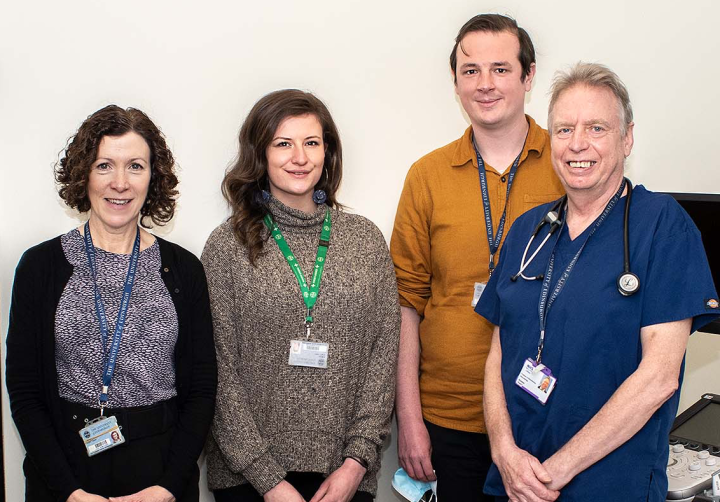Pregnancy Associated Osteoporosis (PAO) study
This study aims to find out more about the causes of Pregnancy Associated Osteoporosis, the natural history of the disease and its response to treatment.

Pregnancy Associated Osteoporosis (PAO) is a rare condition which is thought to affect between 1 in 50,000 to 1 in 100,000 women during or shortly after childbirth, though recent work published by the University of Edinburgh researchers suggests that this rate could be higher. It usually presents with back pain and height loss due to the occurrence of fractures (broken bones) in the spine, but less commonly can also present with fractures of the hip.
The cause of PAO is unclear but there are two theories as to why it occurs. One is that pregnancy triggers an unusual reaction in a previously normal skeleton causing the bones to weaken and break. The second is that affected women start off with low bone density to begin with and that the bone loss which normally occurs in pregnancy causes further bone thinning and results in broken bones.
One of the barriers to finding out more about PAO lies in the fact that it is extremely rare. A research team at the University of Edinburgh, led by Professor Stuart H Ralston have been funded by the Royal Osteoporosis Society to find out more out this rare but disabling condition.
The research study involves gathering information about the risk factors for Pregnancy Associated Osteoporosis, potential risk factors for the disease, how the condition presents and the impact that it has on physical and mental health of people affected.
The first part of this research project was an online survey, which has now been closed to the public so that analysis of that data can begin. The research team are currently collecting blood samples from women all around the United Kingdom, and hope to complete the second phase of the study in 2024.
Thank you to everyone who has taken part. If you have PAO and would be interested in any future research, please get in touch with Kathryn.Berg@ed.ac.uk.


